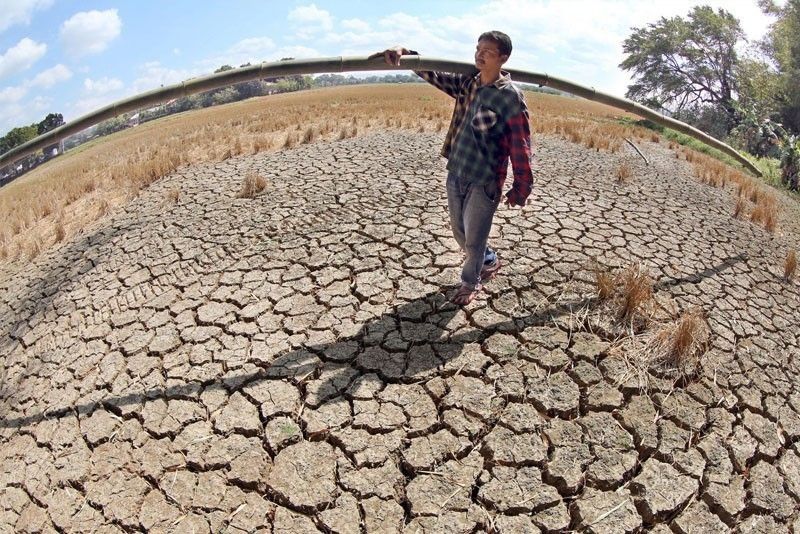Global warming accelerates; worst impact feared

UNITED NATIONS – Global warming has continued to accelerate in the past five years, with extreme weather events feared to be more destructive if the world fails to commit to ambitious solutions to stop climate change, scientists warned over the weekend.
The United in Science report, produced by leading climate science organizations across the world, revealed that climate change has continued to accelerate despite global efforts to curb carbon emissions that contribute to temperature increase.
“Climate change causes and impacts are increasing rather than slowing down,” said Petteri Taalas, secretary-general of the World Meteorological Organization (WMO) and co-chair of the United Nations Climate Action Summit.
“Sea level rise has accelerated and we are concerned that an abrupt decline in the Antarctic and Greenland ice sheets will exacerbate future rise. As we have seen this year with tragic effect in the Bahamas and Mozambique, sea level rise and intense tropical storms led to humanitarian and economic catastrophes,” he added.
The WMO, along with other leading scientific organizations and climate scientists, released on Sunday a high-level synthesis report providing a unified assessment of the state of Earth system under the increasing influence of climate change, the response of humanity and the projected changes of global climate in the future.
Measuring the average global temperature from 2015 to 2019, the report noted that it has already increased by 1.1 degrees Celsius since pre-industrial times (1850 to 1900), up 0.2 degrees from the average increase recorded in the 2011 to 2015 period.
It also said the average global temperature for 2015 to 2019 is on track to be the warmest of any equivalent period on record, which is feared to cause more destructive typhoons, floods, droughts, heat waves and fires across the world.
Earlier reports warned that an increase of at least 1.5 degrees could result in irreversible impact of climate change that could affect millions of people worldwide, especially in vulnerable countries such as the Philippines.
The United in Science report noted the continuing decrease of sea ice and ice mass in the past years, with the long-term trend in the Arctic showing an approximated 12 percent decline per decade.
In Antarctica, scientists discovered that the amount of ice lost annually has increased at least six-fold between 1979 and 2017, while the Greenland ice sheet has witnessed a considerable acceleration in ice loss since the turn of the millennium.
The loss of ice has contributed to the rising sea level, which scientists noted to have amounted to five millimeters per year between 2014 and 2019, up from the four millimeters per year average between 2007 and 2016. The average sea level rise in 1993 was only 3.2 mm per year.
“The contribution of land ice melt from the world glaciers and the ice sheets has increased over time and now dominate the sea level budget, rather than thermal expansion,” added the report.
Scientists have also discovered a rising acidity of the world’s oceans, attributing this to its absorption of carbon emissions to help alleviate warming.
“The ecological cost to the ocean, however, is high, as the changes in acidity are linked to shifts in other carbonate chemistry parameters, such as the saturation state of aragonite,” read the report. “This process, detrimental to marine life and ocean services, needs to be constantly monitored through sustained ocean observations.”
Extreme weather
The changing climate could result in extreme weather events, including storms and flooding that lead to what the report described as the highest economic losses.
“Overall, the largest economic losses were associated with tropical cyclones. The 2018 season was especially active, with the largest number of tropical cyclones of any year in the 21st century,” it added.
“Heatwaves were the deadliest meteorological hazard in the 2015 to 2019 period, affecting all continents and setting many new national temperature records.”
Meanwhile, the UN Food and Agriculture Organization pointed out that climate change is a key driver behind the recent rises in global hunger and one of the leading contributors to severe food crises.
“Climate variability and extremes are negatively affecting all dimensions of food security – food availability, access, utilization and stability,” it said.
Taalas stressed the need for significant efforts to slow down climate change and reach the target of limiting the increase of global temperature to only 1.5 degrees.
“The challenges are immense. Besides mitigation of climate change, there is a growing need to adapt. According to the recent Global Adaptation Commission report, the most powerful way to adapt is to invest in early warning services and pay special attention to impact-based forecasts,” he said.
“It is highly important that we reduce greenhouse gas emissions, notably from energy production, industry and transport. This is critical if we are to mitigate climate change and meet the targets set out in the Paris Agreement,” added the WMO official, referring to the landmark climate agreement signed in 2016.
To stop a global temperature increase of more than two degrees above pre-industrial levels, Taalas said the level of commitments by world governments needs to be tripled.
“And to limit the increase to 1.5 degrees, it needs to be multiplied by five,” he added.
The report was released ahead of the Climate Action Summit convened here at the UN headquarters in New York on Monday.
The summit seeks to highlight concrete plans by leaders from government, civil society and the private sector to cut emissions and strengthen climate resilience.
It will also feature bold actions and multi-stakeholder initiatives that would address high-impact areas such as transition to renewable energy, adaptation and nature-based solutions.
- Latest
- Trending



























